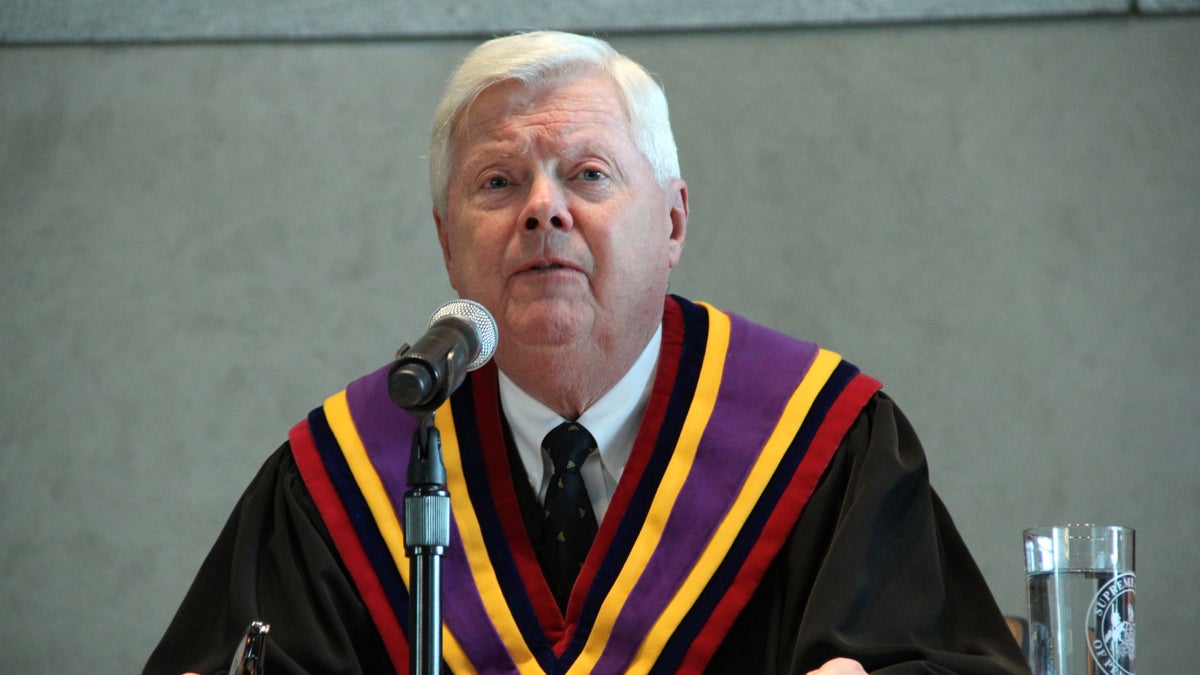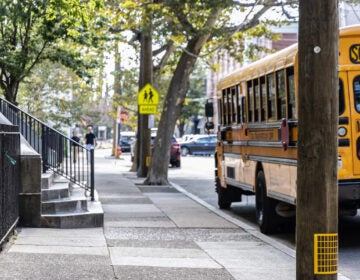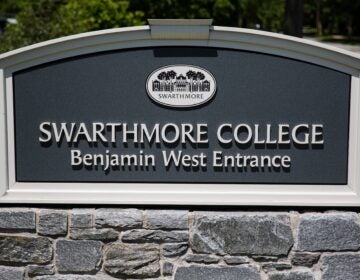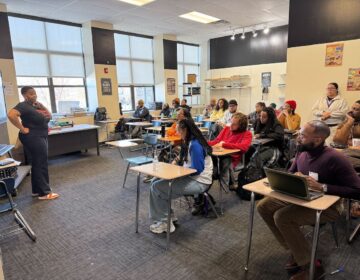Is Pa. ruling an overdue check on SRC power or a prelude to fiscal instability?

Pennsylvania Supreme Court Chief Justice Thomas G. Saylor wrote for the majority in the decision that stripped the School Reform Commission of its power to cancel provisions of the state school code. (NewsWorks file photo)
The Pennsylvania Supreme Court has delivered a major blow to the Philadelphia School Reform Commission in a decision that’s poised to have far-reaching effects on public schools in the city.
The SRC has been assuming that it has special powers to suspend parts of the school code and charter law based on the legislation that created the state-takeover body in 2001.
In a 4-2 bipartisan decision, the state’s highest court said Tuesday that section of the legislation is unconstitutional, and that the SRC has been overreaching its authority. In essence, the court lay fault at the feet of state lawmakers for not defining powers more specifically.
“There really has to be some definition of that power. You just can’t grant the power to suspend or eliminate statute,” said attorney Robert O’Donnell, who argued the case against the SRC for West Philadelphia Achievement Charter Elementary School.
Agreeing with O’Donnell, Chief Justice Thomas G. Saylor wrote the majority opinion, joined by Justices Debra McCloskey Todd, Kevin Dougherty, and David Wecht.
State lawmakers wrote the provision broadly in an attempt to give the school system extra power to deal with – and hopefully overcome – its chronic state of fiscal distress.
The district and the SRC say they will adhere to the court’s decision, but lamented the consequences, calling it “a sobering moment.”
“The SRC was charged with operating a system in deep financial and educational distress within the specific authority granted by the General Assembly,” spokesman Fernando Gallard wrote in a statement.
“By allowing principals to manage their workforce, ensuring the quality of charter seats, and managing charter growth, the SRC worked to fulfill its fundamental mission of getting the School District out of financial and educational distress.”
Gallard alluded to the four key decisions in which the SRC exercised its interpretation of its presumed special powers.
It suspended provisions in either the school code or charter law:
– to ignore the requirement that mandates that school staffing decisions are made in seniority order;- to establish enrollment caps for charter schools that had not agreed to a limit;- to strengthen the criteria for opening new charters and to close underperformers more quickly;- and to shorten the time between public hearings and the final SRC vote on school closings.
The court’s decision voids and reverses the SRC’s actions.
“Now they have to do it in accordance with the law, as opposed to in accordance with whatever policy they would decide on,” said O’Donnell.
Charter school enthusiasts celebrated the ruling.
“We think it is a correct and long-overdue decision,” said Robert Fayfich, executive director of the Philadelphia Coalition for Public Charter Schools. “There hasn’t been a more impactful decision than this one.”
Whether that impact is good or bad will be hotly debated. Charter advocates say it will lessen the number of city families stuck on charter waitlists.
Opponents, including SRC Commissioner Bill Green, say it will wreak havoc on the district’s finances, hurt students in district schools, and allow the worst-performing charters to expand without regulation.
“It takes resources from the district, but it also puts families and children who think they are getting a better option – who are not – in a much worse situation than in their district schools,” said Green in an interview after Tuesday night’s SRC meeting.
City Councilwoman Helen Gym agrees with Green’s point, but she also appreciates the check placed on the SRC’s power.
“The Supreme Court came down very clearly and said that an unelected body does not have the right to unilaterally do whatever it darn-well pleases,” she said.
Philadelphia Federation of Teachers president Jerry Jordan echoed that sentiment. Jordan allayed fears that the court’s decision would cause immediate tumult in an attempt to reinstate seniority.
“That’s not what teachers, parents or kids would want. But we certainly haven’t had the sit-down conversation with them in order to talk about implementation,” he said.
Powerless SRC? Spotlight on the state?The court’s decision point brings up a larger question.
The SRC is still the only school board in the state to lack taxing authority. It now can’t suspend the school code. And lower courts have ruled that it can’t unilaterally cancel or alter union contracts.
So is the SRC any more potent or powerful than any of the state’s other 499 school boards? Perhaps less so?
“It opens up all kinds of questions. ‘What’s the real authority of the SRC?’ is, I think, the fundamental question,” said Fayfich.
Advocates for traditional public schools say those questions highlight the need for the state legislature to act immediately to better the district.
Donna Cooper, executive director of Public Citizens for Children and Youth, said that means providing additional funding, rewriting the state’s seniority rules and reforming the charter law.
“If they have a desire to resolve the academic challenges and fiscal challenges in Philadelphia, they need better state laws,” she said. “They need to fund the district, and they need to put better state laws into place that aren’t going to be constitutionally challenged.”
The Education Law Center agreed.
“In the absence of an adequately funded formula that accounts for stranded costs to districts due to charter expansion – and in the absence of larger systemic charter funding reforms – this decision substantially destabilizes the district’s long-term finances,” wrote executive director Deborah Gordon Klehr.
ELC hopes the high court will hear its case charging that the state has failed its constitutional duty to provide all students a “thorough and efficient education.”
The case at handWest Philadelphia Achievement Charter Elementary School and the district have been in a years-long dispute over the charter’s enrollment practices. ACES was first authorized in 2001 to serve 400 K-5 students. It was renewed in 2006 under the same deal. Up for renewal again in 2011, the charter had arranged to move into a new facility that it could only afford if it enrolled additional students.
ACES then refused to sign an agreement limiting the school to 400 students.
“We were at a stalemate. We were at a point where we can’t sign for less than the numbers we need to uphold our commitment to our bondholders,” said Stacy Phillips, ACES’ founder.
The charter defied the SRC by enrolling up to 695 students – which contributed to the SRC suspending the provisions of the charter law in 2013.
Feeling victorious after the court’s ruling, Phillips said she will now push to add middle grades to the elementary, which would grow the school by 300 students – bringing the total to about 1,000.
Phillips said she recognizes the fiscal stress that charters place on the district’s schools.
“I do care about the district. I do want them to be able to survive. My heart goes out to their situation, but I can’t change their situation,” said Phillips. “I can only make it better for the children that come across our path and come to our door.”
ACES charter is again up for renewal this year. The school chooses not to participate in the district’s school evaluation system. Phillips says both the district’s School Progress Report and the state’s School Performance Profile are “flawed.”
WHYY is your source for fact-based, in-depth journalism and information. As a nonprofit organization, we rely on financial support from readers like you. Please give today.





